Film Name: 困在心绪里的儿子 / The Son
The Father, the Oscar-winning film about Alzheimer’s patients, brought unprecedented attention to director Florent Zeller, who last year released The Son, the second film in his “family trilogy,” which opens in theatres this Friday.
Honestly, I was surprised by some of the bad reviews before I saw the film, but it turned out to be a different story, and it’s definitely a good film.

The theme of The Son is the difficulty of parent-child communication and the complexity of family relationships. The film magnifies this predicament through the acute depression of his son, Nicholas, and uses the corresponding drama and the conflict between the old and the young to highlight the responsibility, trauma and shortcomings of Peter, who is the real “eye of the show”.
It may not be a great hit, but it is enough to make people sad and depressed, because in the difficult reality, even the precious “love” will seem pale and powerless.
[Friendly reminder: there will be spoilers below].
Probably the most criticised and misunderstood aspect of the film is its overly flat narrative – in contrast to the subtly artistic presentation of The Father, the film takes a very lived-in approach, with all the scenes and camera work focusing on what the characters (and the audience) can see at a glance, without any visual peeks or dissections into the characters’ psyches. the psyche of the characters without any visual peeks or dissections of the characters’ psyches.
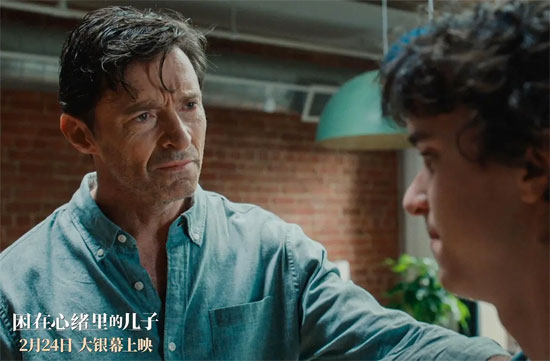
This leads to Nicholas, the surface of the biggest conflict has been “unknown”, we do not know what he is really thinking, scratching his head, but also in the confusion and suffering from the pain.
However, this state of not being able to get what he wants, and even a little sick, is precisely the most realistic portrayal of teenage depression, and at the same time, it is also the group that is most vulnerable to misunderstanding. …… After removing the modifications of technique, what the audience sees is precisely the realistic life that is not painful.
If we narrow down Nicholas’s “problem” a bit, I believe that everyone can relate to it: we have all been young or are still young, and there is always the feeling that “adults/others can’t understand me”, and sometimes this feeling comes so quickly and strongly that we can’t even explain why we are depressed. Sometimes this feeling comes so quickly and strongly that we can’t even explain why we feel down and depressed, and we can only sulk to ourselves, becoming the child that adults see as “a child who makes a fuss and doesn’t know what’s going on”.
For me, the story of The Son resonates a lot, not only because I have been there myself, but also because after becoming a father, I am afraid that my children won’t tell me what they are feeling and thinking – and this is the biggest dilemma that Peter faces in the film.
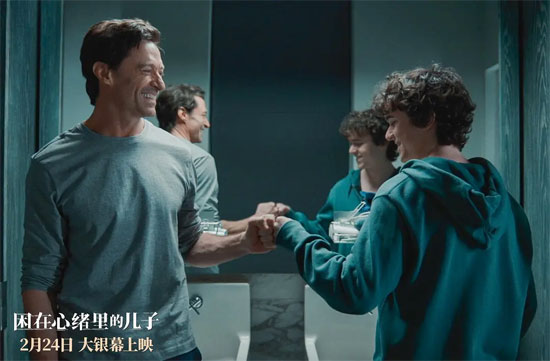
Peter undoubtedly loves his son, and is willing to disrupt his life with his new partner, Beth, by promising his ex-wife, Kate, to take care of Nicholas, who is truant from school and self-harming, but in order to solve his son’s problems, it is not enough just to transfer him to a different school and a better living conditions, Peter also needs to know what’s wrong with him.
This is precisely the hardest part: while Peter asks his son with all sincerity, Nicholas is often speechless, responding to care with evasion, avoiding care with pretence, and for a while, Nicholas simply lies about everything, claiming to have friends and parties, laughing and pursuing a life like any other person of his age, and Peter happily assumes that his son is back to normal.
This is a very solid aspect of The Son, which suggests that parents should trust their children on the one hand, and be good at doubting them on the other, even if they can’t be all-knowing, they should be good enough to know what’s going on.
In reality, the vast majority of parents fail to do this, and the film’s protagonist, Peter, even more so – and through Anthony Hopkins’ brief but brilliant scene with Hugh Jackman, we all know why.
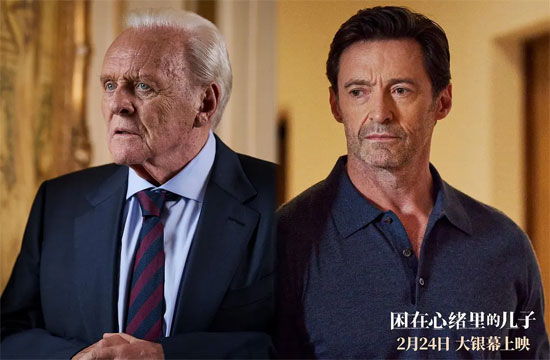
Peter’s father is a family man, obsessed with his career and socialising, and has little remorse for owing his wife and traumatising his son, and when Peter comes to him for advice on caring for Nicholas, he feels that his son has come to him as a demonstration of his moral superiority, and attributes the emotional problems of both his children and grandchildren simply to a contrived “self-involvement”. He also attributes the emotional problems of his children and grandchildren simply to the artifice of “self-indulgence.
So, Peter on the one hand, trying to care for his son, trying to avoid becoming another bad father, on the other hand, in the lack of love, lack of money and other subjective and objective factors of the subtle influence, Peter has become another do not stay at home “career-oriented” man.
So, apart from Nicholas, who is suffering from depression, Peter, who cannot break the cycle of intergenerational trauma, is also a “son trapped in his mind”.
The Son” seems to be plain and simple, but it is like a scalpel that must be mercilessly and precisely used to slowly show the truth of life in all its gory glory: “Everyone is right, but everyone loses”.
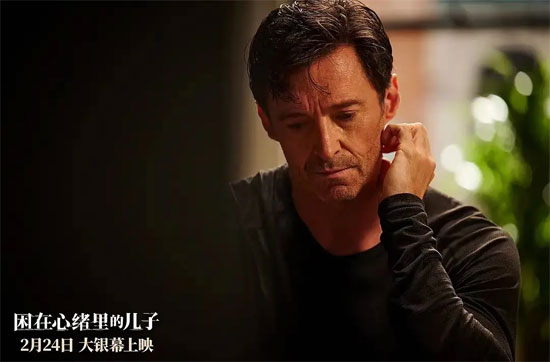
In addition to the father-son relationship, the film also touches on other family emotional entanglements, such as Peter and Kate’s unequal divorce, Peter and Beth’s union that began with passion and ended with tradition, and Beth and Nicholas’ seeming disassociation, which in turn play into Peter and Nicholas’ changing psyches, adding complexity and layers to the story.
Hugh Jackman, Vanessa Kirby, Laura Dern and others give solid, solid performances, fulfilling their mission in a film that doesn’t have a lot of room to play like The Son, and Anthony Hopkins is the best in the house, which is a real treat! “It’s just that some people have such a combination of talent and strength”.
In fact, after watching the film, the scene that impressed me most was a recollection of an episode in The Son: Peter and Kate, who have not yet been separated, take six-year-old Nicholas to the beach for a holiday, and Peter uses the fact that life preservers don’t work as a reason for his son to learn to paddle for the first time.
Both is to force young children to face the fear of delusion, but also to guide the child to overcome the fear of the means, right or wrong, there is no absolute right answer …… Fortunately, that time Nicholas overcame the fear, swam to the other side of the seemingly distant, but actually a stone’s throw from the other side of the shore, and got the father’s hot embrace.
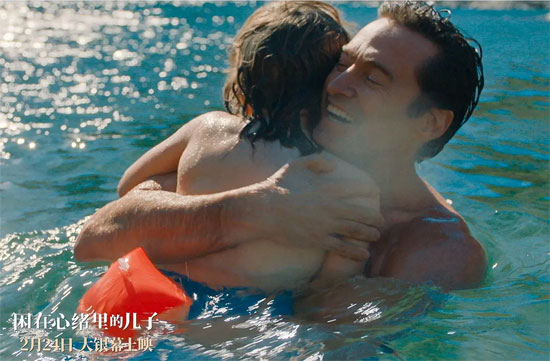
Peter loved his son so much …… Unfortunately, when he reached out to Nicholas again more than ten years later, his son could not swim to his side.
The cruelest thing about the film is that it points out the fact that “love can’t solve all problems”. Or that love is not only pity, respect and fullness of emotion, but also familiarity, understanding and the right kind of giving.
Misplaced expectations between parents and children, ineffective communication that leads to family difficulties, these difficulties happen all the time, but not many of them can be solved, and this is where The Son has a universal connotation.
Please specify:Anime Phone Cases » The Son 2022 Film Review: feel no qualms about sth